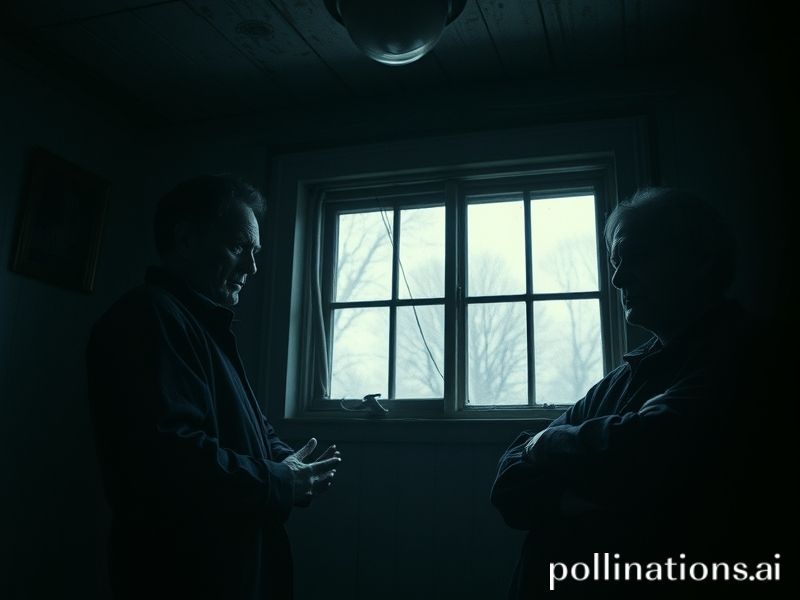Did Ed Gein Kill His Brother? The Internet’s Latest True Crime Obsession, Explained
**Title: “Did Ed Gein Kill His Brother? The Internet’s Latest True Crime Obsession, Explained”**
Alright, folks, buckle up because we’re diving headfirst into the latest true crime rabbit hole that’s got the internet buzzing: **Did Ed Gein kill his brother?** Yes, you read that right. We’re talking about Edward Gein, the infamous Wisconsin killer whose crimes inspired some of Hollywood’s most chilling horror characters, from Norman Bates in *Psycho* to Leatherface in *The Texas Chain Saw Massacre*. But why is the internet suddenly obsessed with this decades-old mystery? Let’s break it down.
### **The Case: A Brief (But Chilling) Recap**
For those who haven’t brushed up on their true crime lore, Edward Gein was a farmer and grave robber who committed some of the most gruesome murders in American history during the 1950s. He was convicted of killing two women, Bernice Worden and Mary Hogan, but rumors and speculation have swirled for decades about whether he was responsible for other deaths—including that of his own brother, Henry Gein.
Henry Gein disappeared in 1954, and when Edward was questioned, he claimed that Henry had accidentally shot himself while the two were out hunting. The official cause of death was ruled a suicide, but the circumstances were suspicious enough to fuel conspiracy theories for decades. Fast forward to today, and the internet is digging up (pun intended) this cold case with renewed vigor.
### **Why Is This Trending Now?**
So, why the sudden resurgence of interest in this case? A few factors are at play here:
1. **True Crime Renaissance**: We’re living in the golden age of true crime. Podcasts, documentaries, and social media deep dives have turned morbid curiosity into a full-blown cultural phenomenon. The internet is always hungry for a new mystery to dissect, and the Ed Gein case is ripe for speculation.
2. **Social Media Algorithms**: Platforms like TikTok and Twitter thrive on viral trends, and true crime is a perennial favorite. Once a few influencers or content creators start posting about the case, algorithms push it to more users, creating a snowball effect. Before you know it, #EdGein is trending globally.
3. **Unsolved Mysteries**: The internet loves a good mystery, especially one with as many unanswered questions as the Gein case. Was Henry’s death really a suicide, or was it foul play? The ambiguity is like catnip for armchair detectives.
4. **Pop Culture Influence**: Ed Gein’s legacy looms large in horror culture. His crimes inspired some of the most iconic villains in film history, so any new development (or old speculation) about his life is bound to capture attention.
### **Cultural Context: The Dark Side of American Folklore**
Ed Gein isn’t just a historical figure; he’s a cultural touchstone. His story taps into deep-seated fears about isolation, madness, and the banality of evil. The idea that a seemingly ordinary man could commit such horrific acts resonates with our collective psyche, which is why his story has been adapted into countless films, books, and TV shows.
But beyond the horror, there’s a darker undercurrent to the fascination with Ed Gein. His story is often sensationalized, turning him into a macabre celebrity. This raises questions about how society consumes true crime and whether our obsession with monsters like Gein does more harm than good.
### **Social Impact: The Double-Edged Sword of Internet Sleuthing**
On one hand, the internet’s renewed interest in the Ed Gein case could lead to new discoveries or fresh perspectives. Amateur sleuths have been known to uncover crucial evidence in cold cases, and the collective power of the internet can be a force for good.
On the other hand, there’s a risk of sensationalism and misinformation. As more people jump on the bandwagon, the line between fact and fiction can blur, leading to wild theories that do more harm than good. It’s a reminder that while the internet can be a powerful tool for investigation, it can also be a breeding ground for speculation and rumor.
### **Why This Topic Matters**
The Ed Gein case is more than just a morbid curiosity; it’s a reflection of our cultural fascination with the macabre. It raises important questions about how we consume true crime, the ethics of sensationalism, and the power of the internet to shape public discourse.
Whether or not Ed Gein killed his brother may never be definitively answered, but the conversation itself is a testament to our enduring fascination with the dark side of human nature. And as long as there are mysteries left to solve, the internet will keep digging.
—
**Final Thoughts**
So, did Ed Gein kill his brother? The answer may be lost to history, but the question itself is a fascinating window into our collective psyche. As we continue to dissect this case, let’s remember to approach it with a critical eye and a healthy dose of skepticism. After all, the truth is often stranger—and more complicated—than fiction.
—







